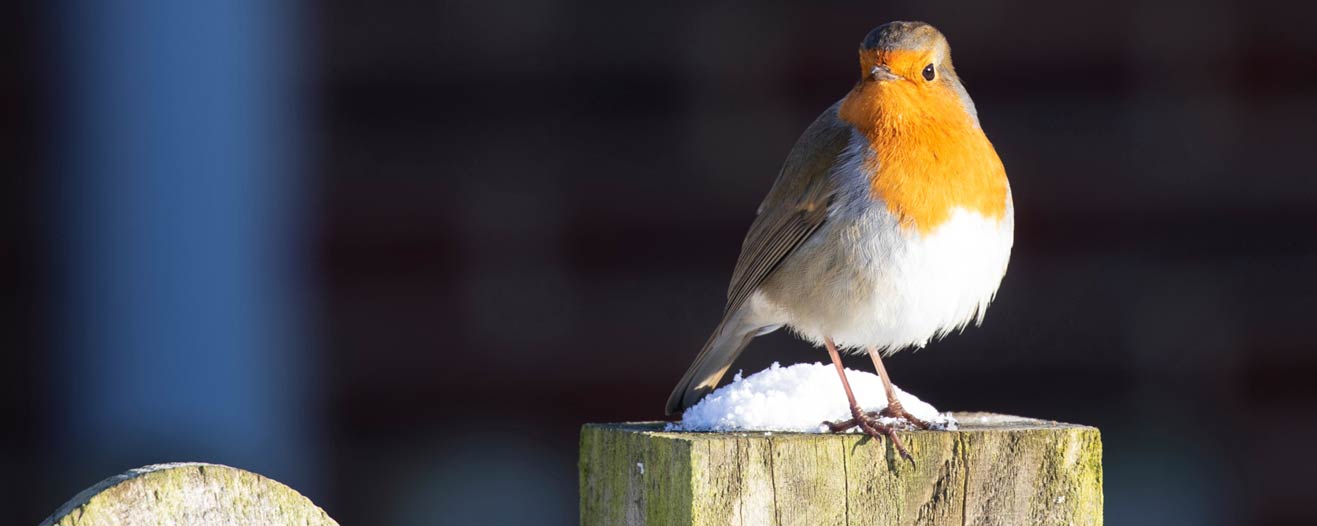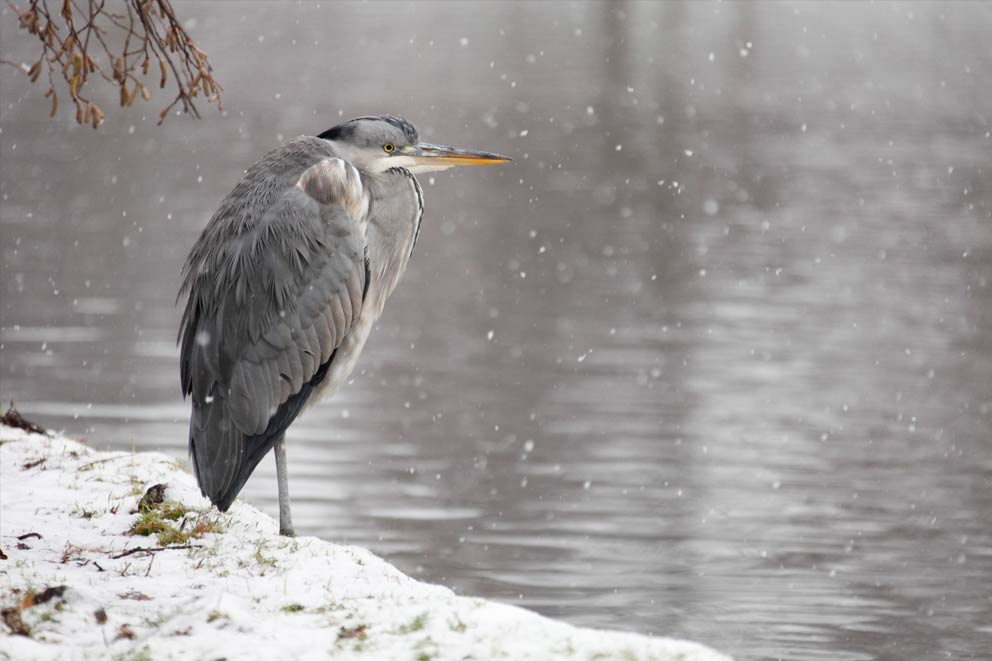- Find a Pet
- Advice and Welfare
- Ways to Give
- Get Involved
- What We Do
- Search
- My RSPCA
- Report a concern
- Gift in Wills
-
Colour modeVivid Calm
- Home
- Advice and welfare
- Seasonal advice
- Winter
- Wildlife in winter
Helping wildlife in winter
We can all struggle with the changing weather. Our wildlife friends are no different. Here's how you can lend a helping hand to wildlife this winter.

Feeding birds in winter
Take a look at our tips on feeding garden birds - including our bird feeding guide.
Birds may find it harder to find their normal food in winter, but you can help them to stay strong by leaving out extra food for them. Never try to use antifreeze or salt to thaw frozen ponds, birdbaths or any water container used by animals.
Helping badgers in severe weather
Badgers don't hibernate, but they do sleep through most of the severe weather. They have a tough time finding their favourite food of earthworms when the ground is frozen. They'd welcome nibbles such as lightly cooked meats, cheese, peanuts and fruit.
Learn more about helping badgers.
Melting frozen ponds
Toxic gases can build up in frozen ponds, killing fish or frogs that may be hiding at the bottom. If you have a pond, check it every day for ice.
If the pond does freeze over, carefully place a saucepan of hot water on the surface to melt a hole. Never tip boiling water onto it or break the ice with force, as this can harm fish.

Hibernating hedgehogs, frogs and mice
Follow the links below for more tips on helping the wildlife in your garden.




